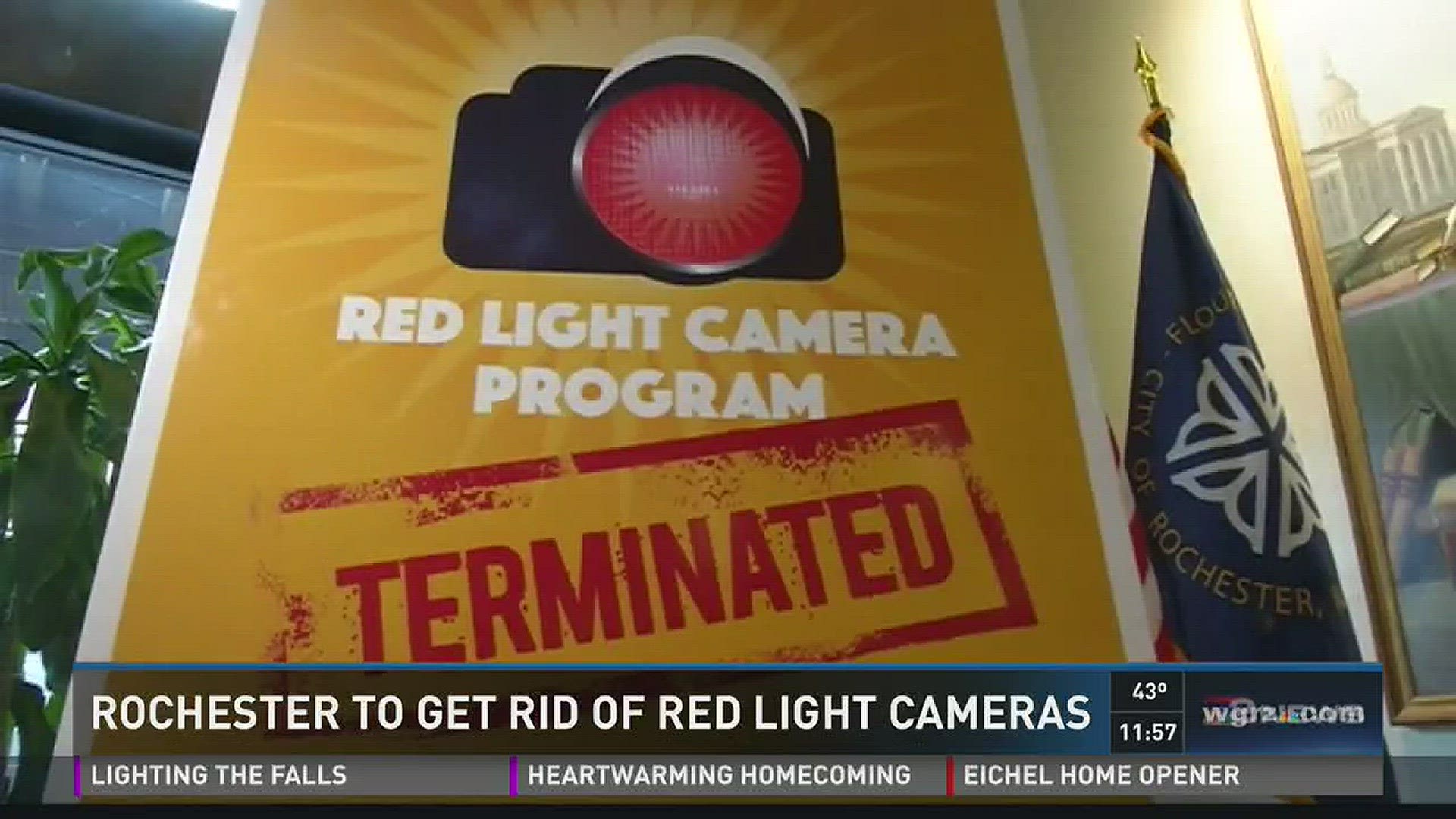ROCHESTER, N.Y. - Citing disproportionate impact on some of the city's most impoverished neighborhoods, Mayor Lovely Warren on Thursday announced an end to Rochester's red-light camera program.
If City Council approves, the mayor said, the cameras will go dark Dec. 31.
"I reached the conclusion the benefits simply don't justify a further extension" of the contract, she said. "I'm very concerned that too many of these tickets have been issued to those who simply can't afford them, which is counter-productive to our efforts to reverse our city's troubling rates of poverty."
Rochester launched its red-light camera program in October 2010 and currently has 48 cameras at 32 intersections.
Each ticket issued carries a $50 fine, with a portion of that going to pay for rental of the cameras and processing of the tickets. The city's contract with Redflex Traffic Systems is such that Redflex loses money unless the cameras generate enough ticket revenue to cover expenses. Anything above those expenses goes to the city.
Leonard Redon, special assistant to the deputy mayor, said the program typically generates actual revenue of between $800,000 and $1 million annually.
"That was something we had to take into consideration when making this decision," he said. "But ultimately, this is about the citizens and their needs."
'Wildly unpopular'
In 2012, Rochester was among 533 communities across the country using red-light cameras to help enforce traffic law. That's when red-light camera use reached its peak, according to the Insurance Institute for Highway Safety. As of this month, just 430 communities are now using red-light cameras.
The reasons officials give for shuttering the systems vary, but often include a high cost for citations and citizen outcry over the automated enforcement.
In some areas, municipalities have run into trouble because traffic signals weren't providing motorists a consistent 3.6-second interval for yellow lights, and others have run afoul of their own state laws governing how motorists are notified of their tickets.
Acknowledging issues here, Warren noted that the program has been "wildly unpopular" since its inception.
Transportation groups nonetheless advocate for red light cameras. The Insurance Institute says flipping the switch on the program will likely cost lives. According to their studies, cities that ran with red-light cameras between 2010 and 2014 saw a 21 percent drop in the number of fatal red-light-running crashes, while those that turned their systems off saw a 30 percent increase.
David Goldenberg, a spokesman with the Traffic Safety Coalition, said there's no question data shows red-light cameras make intersections safer.
"The data is absolutely conclusive that cameras made Rochester roads safer and data from around the country shows that red-light running crashes, injuries and even deaths per capita go up when the cameras get turned off," he said.
Here, a study released by the city in May showed an overall reduction of 21 percent in crashes at intersections with red-light cameras since the cameras were installed. The report looked at nearly 6,000 accident reports dating back to 2007.
Still, Warren said, she found the report unpersuasive.
"Some of the intersections with cameras did see a decrease in red-light violations, others saw an increase and some stayed the same," she said. "Meanwhile the ZIP codes that have the city's highest poverty rates, like 14605, 14609 and 14621 generated the highest numbers of red-light camera tickets."

